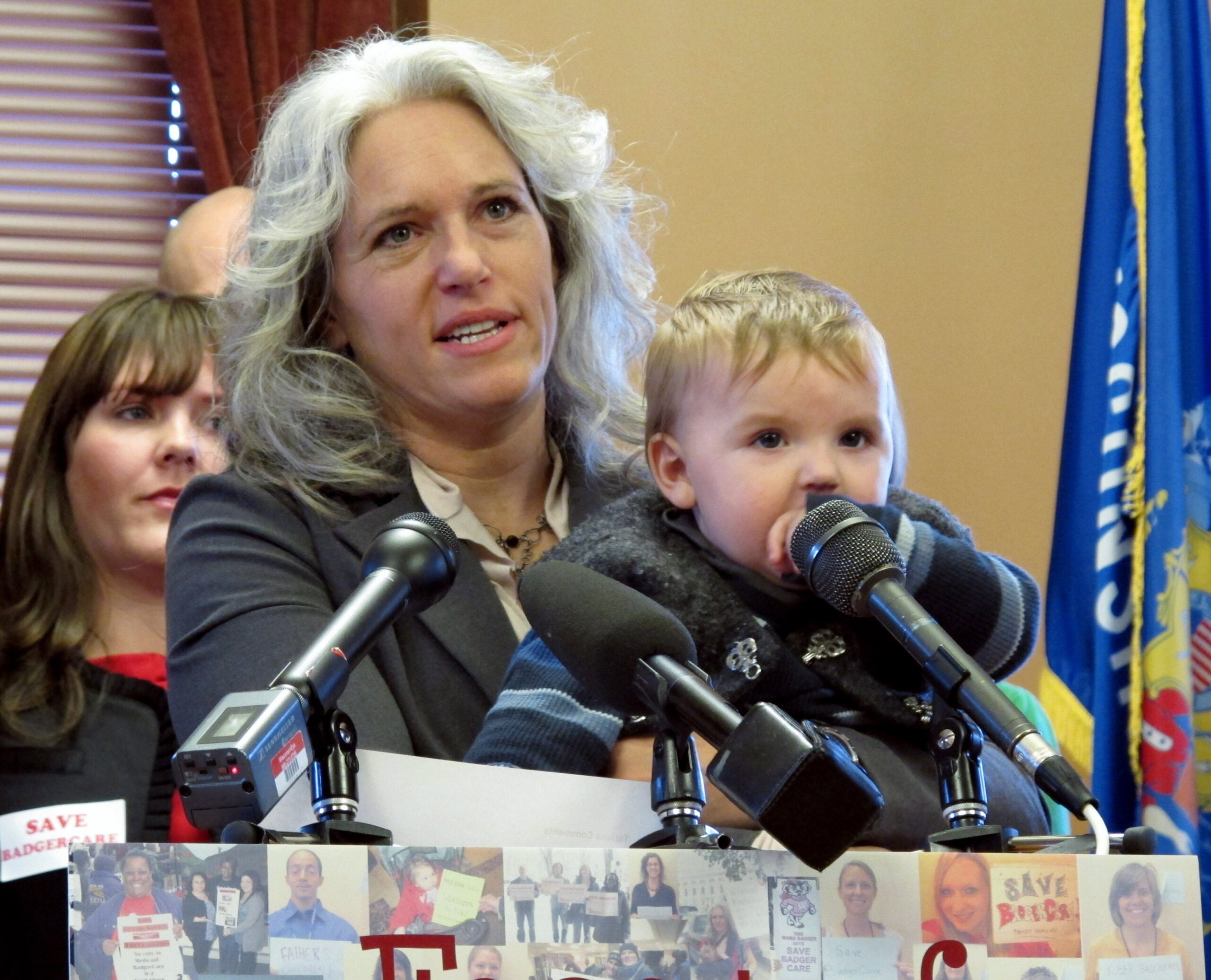This story was originally published by Wisconsin Watch.
Assisted living can offer residents more independence and a less institutionalized setting than in traditional nursing homes, making them more popular with Wisconsin seniors.
Another difference? Fewer protections for Medicaid recipients.
News with a little more humanity
WPR’s “Wisconsin Today” newsletter keeps you connected to the state you love without feeling overwhelmed. No paywall. No agenda. No corporate filter.
Federal law bans nursing homes from ousting residents for reasons related to a Medicaid transition — if the facility accepted Medicaid when they moved in. That’s not the case in assisted living.
Local resources can help seniors find a care facility and stay there after their Medicaid transition.
Who relies on Medicaid for assisted living?
Those who can’t afford the sizable cost of care on their own.
A year of assisted living in Wisconsin costs more than $60,000 on average, according to estimates by Senior Living, and the median length of stay nationally is 22 months.
More than 20 percent of assisted living residents in Wisconsin pay with Medicaid.
What resources help seniors navigate assisted living options?
Those contemplating a move to assisted living — or helping a loved one do so — can get help from a local Aging and Disability Resource Center.
The Wisconsin Department of Health Services has an online list of ADRCs by county.
The centers offer free assistance to help:
- Find government assistance programs a senior might qualify for based on their savings, including Medicaid.
- Determine what kind of care fits people’s preferences and needs.
- Narrow searches for care. ADRCs may know which facilities accept Medicaid, require out-of-pocket pay and carry specific services — saving people from having to call every facility in their area.
- Conduct eligibility screenings for government aid.
- Offer advice on what to look for while touring a facility. Touring facilities is an important step in determining what’s a good fit, says Jennifer Fischer, manager of the Aging and Disability Resource Center of Dane County.
How else should people prepare for assisted living?
Try to plan ahead. Many assisted living facilities that accept Medicaid require residents to pay privately for years before they accept government-assisted payments.
Those who secure care before becoming Medicaid-eligible have more facilities from which to choose. But paying out of pocket doesn’t guarantee that an assisted living facility will later accept people once they switch to Medicaid.
And for those already on Medicaid? Some facilities will accept those payments at admission. Local ADRC representatives can help locate those options.
What if a facility promises to accept Medicaid after initial private pay?
Get that promise in writing, said Kim Marheine, Wisconsin’s state long-term care ombudsman.
Families often accept verbal agreements that may not hold up once a transition to Medicaid begins.
But even written promises don’t always prevent a disruptive relocation ahead of a switch to Medicaid, such as when a facility is sold or cancels its Medicaid contract.
Families should consult a lawyer if a facility asks them to sign a contract conditioning Medicaid acceptance on a certain amount of private spending, said Eric Carlson, an attorney and director of long-term services and support advocacy with the legal nonprofit Justice in Aging.
What if an assisted living facility issues a discharge notice due to a Medicaid switch?
Get in touch with a long-term care ombudsman, an advocate for seniors receiving care at home, in a nursing facility or through assisted living. (Call 1-800-815-0015.) An ombudsman can try to persuade the facility to change its decision.
“It doesn’t always work, but it’s always worth a try,” Marheine said.
Contacting an ombudsman quickly allows that person more time to negotiate. The ombudsman also works to ensure that facilities honor residents’ rights, like sending residents proper notice before a relocation and helping them find new care.
A lawyer could also help families navigate next steps, Carlson said.






